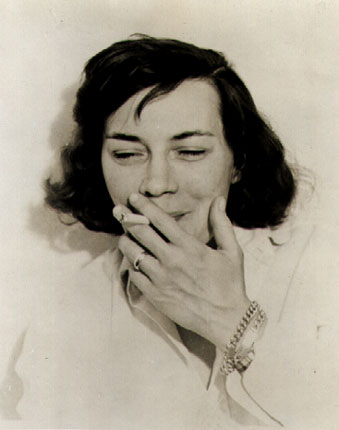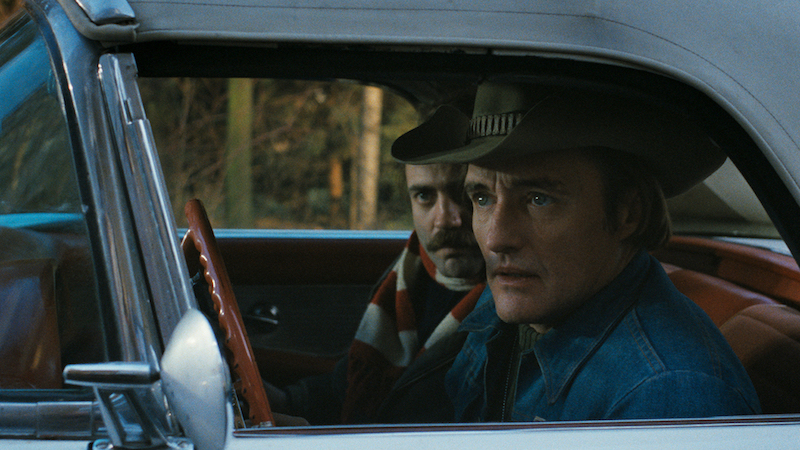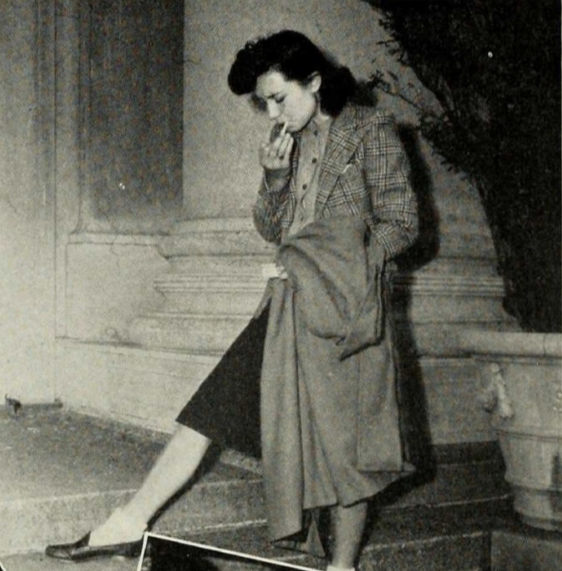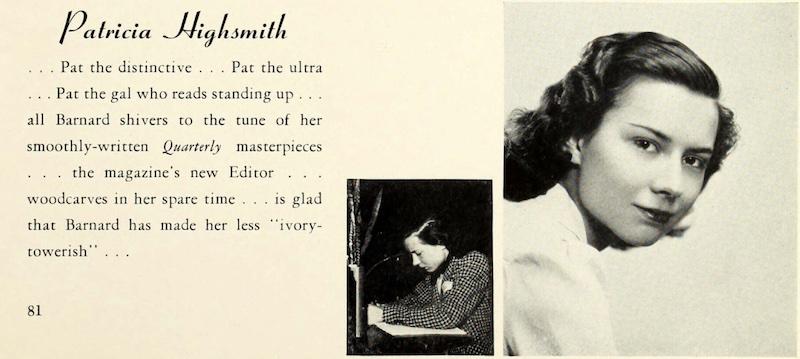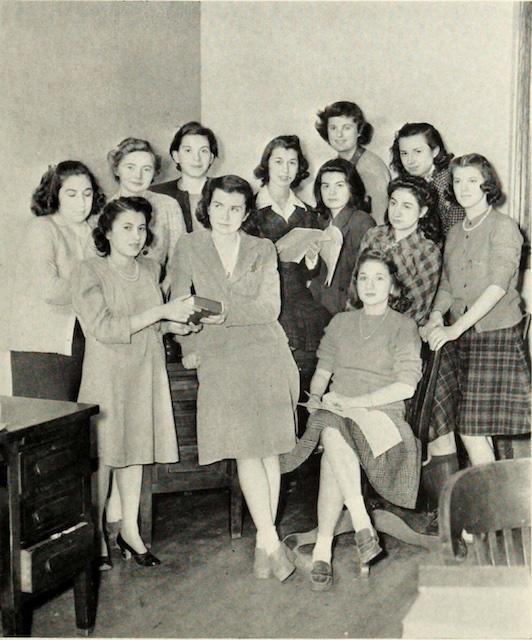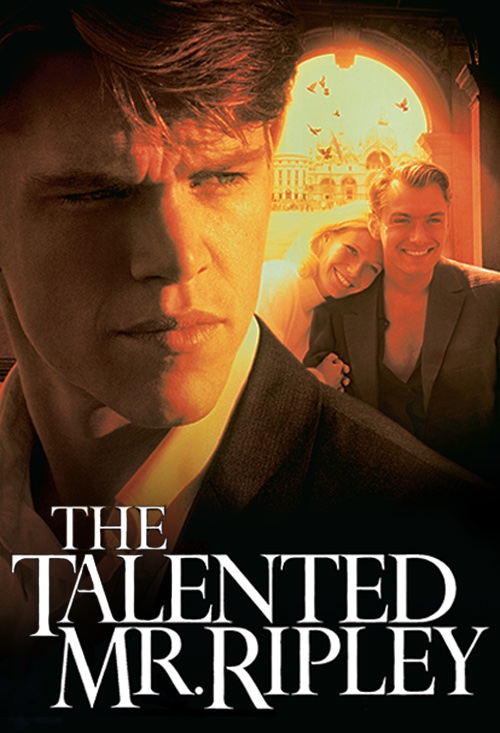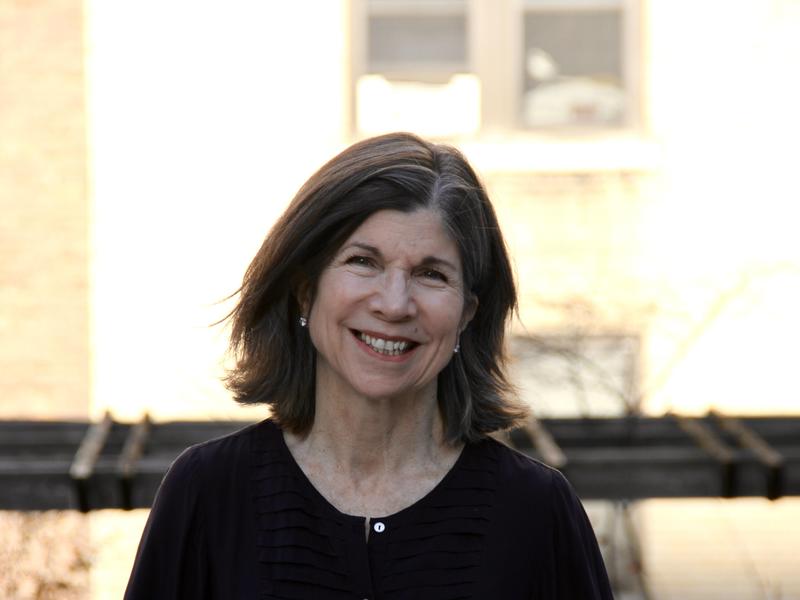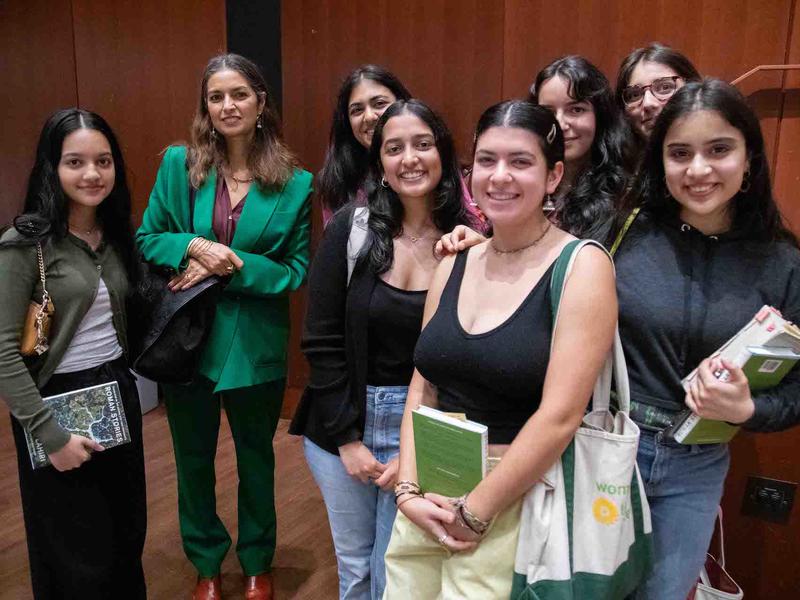Some of the 20th century’s most famous authors, names like Agatha Christie and Stephen King, are known as much for cinematic adaptations of their work as for the books themselves. Included in this esteemed group is Barnard alumna Patricia Highsmith ’42 — a celebrated master of the thriller genre, whose work has been adapted for the silver screen over 20 times.
The latest, Ripley, is an episodic take on her most famous literary creation, The Talented Mr. Ripley, and premieres on Netflix on April 4.
Born in Fort Worth, Texas, in 1921, Highsmith left a tumultuous home life for Barnard, where she began writing short stories as an undergraduate. She worked as a comic book illustrator and writer while simultaneously pursuing literary writing after graduation. At only 27 years old, during a two-month stay at the Yaddo artist retreat in upstate New York, Highsmith wrote the first draft of the thriller Strangers on a Train, which became her first published novel in 1950. The following year, Strangers was on the big screen.
A prolific writer, Highsmith penned dozens of books from the 1950s to the 1990s, and nearly half of them have been adapted into films. Her novels have won the French Grand Prix de Littérature Policière and the British Crime Writers Association’s Silver Dagger award, while her film adaptations have been recognized by the Academy Awards, the Golden Globes, the Cannes Film Festival, and the Library of Congress.
Ahead of next month’s highly anticipated Ripley premiere, learn more about some of the most celebrated takes on Highsmith’s work.
Strangers on a Train (1951)
Directed by the legendary Alfred Hitchcock, with a screenplay co-written by genre icon Raymond Chandler, the tension-soaked story begins with a thought experiment between two men traveling on the same train: Wouldn’t it be the perfect crime for two strangers to kill a troublesome person in the other’s life, so the crime would never be traced back to them?
The Hitchcock classic is included in the Library of Congress’ National Film Registry and cemented Highsmith’s place in cinematic, as well as literary, history. Other adaptations have included a 2004 BBC Radio 4 drama and a 2013 West End stage adaptation. The story also serves as a central plot point in the comedy Throw Momma from the Train, directed by and starring Danny DeVito.
Purple Noon (1960)
Highsmith’s popular 1955 novel The Talented Mr. Ripley also had a quick journey to the silver screen. Director Réné Clément saw the cinematic potential in the book, about the cold-blooded, class-ascending Tom Ripley, immediately. “Those who try to cultivate ambiguity in the thriller genre don’t always succeed,” Clément said in 2012, “but Highsmith achieves something quite deep and genuinely successful.”
The French-language film follows Ripley on a journey that begins as a paid assignment to bring a wealthy friend home from Italy to America, but escalates to seduction, lies, and murder. The first in a series that includes five books, Ripley has been adapted for film at least three times — inspiring last year’s Saltburn and this season’s new Netflix series. Today, collectors can purchase a first edition of the novel for a whopping $2,500.
The American Friend (1977)
While Highsmith may not have recognized much of her 1974 novel Ripley’s Game in German director Wim Wenders’ The American Friend, in this loose adaptation, the tragic and ill Jonathan Zimmermann cannot escape being tempted to murder by the manipulative Ripley. At the time of the film’s release, The Washington Post noted the pull that Highsmith’s Ripley seemed to exert on talented filmmakers: “[They] all have produced something distinctive and interesting out of her recurring situation of the tangled relationship between a clever, manipulative criminal and his basically decent yet susceptible prey.”
The Talented Mr. Ripley (1999)
In 1999, writer-director Anthony Minghella revisited Highsmith’s most famous character with a star-studded, stylish take on The Talented Mr. Ripley. A young Matt Damon was cast as the mutable and opportunistic Tom, a man on a mission to Italy to retrieve the wealthy Dickie Greenleaf, played by Jude Law. A who’s who of award-winning actors — including Gwyneth Paltrow, Cate Blanchett, and Philip Seymour Hoffman — make up the rest of the cast. The New York Times Magazine wrote that the film “nails both the wonder that has attended our century's celebratory version of the American dream and the anxiety that is stirred up by that dream's stealthy doppelgänger, the American tragedy that befalls the Gatsby-esque dreamer who goes too far.” The film was nominated for five awards at both the Academy Awards and the Golden Globes.
Carol (2015)
While Highsmith is most closely associated with thrillers, the book that is perhaps her most personal is also unique for its humanity and evocation of love. Written while Highsmith was in an uncertain engagement to a man and inspired by a fascinating stranger glimpsed at the author’s job at Bloomingdale’s, 1952’s The Price of Salt — published under the pseudonym Claire Morgan — traces the romance between 19-year-old shopgirl Therese and 30-something housewife Carol.
The 2015 film adaptation earned multiple Oscar nominations, including best actress for Cate Blanchett in the titular role, best supporting actress for Rooney Mara as Therese, and Phyllis Nagy for best adapted screenplay. It also inspired the meme “Harold, they’re lesbians.”
